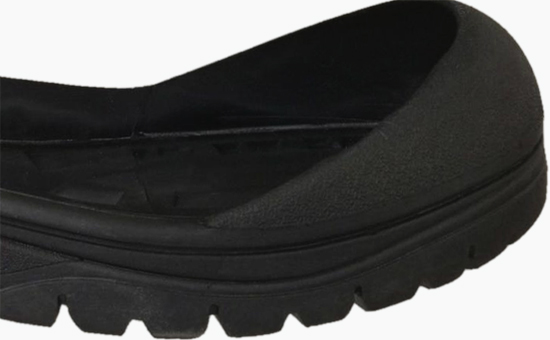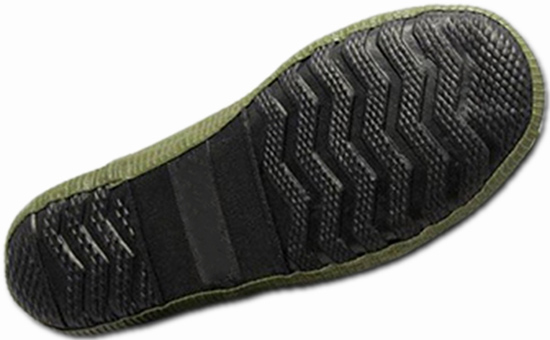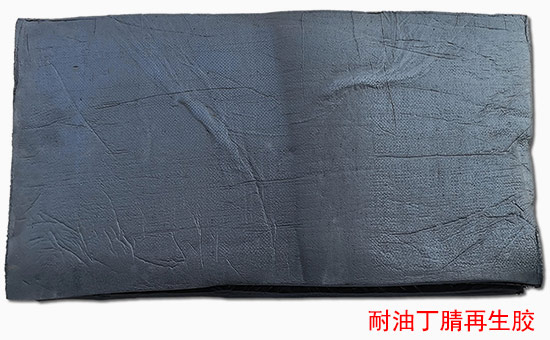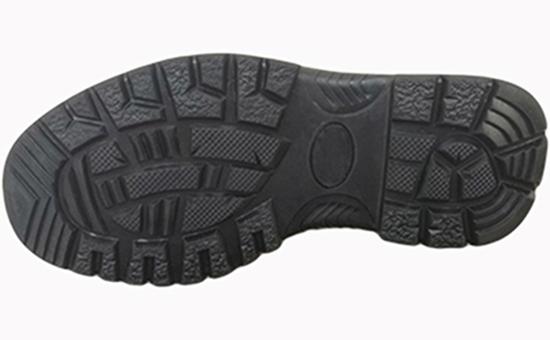
Oil-resistant rubber shoes need to be in contact with oil substances. Generally, oil-resistant rubber such as neoprene or nitrile rubber is used as the main raw material. Oil-resistant rubber shoes that do not require high oil resistance can also use non-polar rubber such as natural rubber and butadiene rubber. . Nitrile reclaimed rubber is currently the mainstream raw material to replace nitrile raw rubber to produce oil-resistant rubber products. It can be used with nitrile rubber, neoprene, natural rubber, etc. to produce oil-resistant rubber shoes. Properly adjusting the formula of rubber products can ensure the oil-resistant performance of the product. At the same time, it can effectively reduce the cost of raw materials, save labor and electricity.
1. The combination of nitrile reclaimed rubber and original rubber to produce oil-resistant rubber shoes
(1) Nitrile reclaimed rubber + nitrile rubber: Nitrile rubber is polymerized from acrylonitrile and butadiene monomers. It has excellent oil resistance and is widely used in the production of various oil-resistant rubber products, including gaskets, hoses, Oil seals, rubber rollers, seals, rubber shoe soles, etc. Nitrile-butadiene reclaimed rubber 2ELYY37 retains the excellent oil resistance of nitrile-butadiene rubber, and has good compatibility with nitrile-butadiene rubber. It can be used with nitrile-butadiene rubber to produce oil-resistant rubber shoes, which can effectively reduce the cost of raw materials while ensuring the oil resistance of the product.

(2) Nitrile reclaimed rubber + chloroprene rubber: Neoprene rubber is processed with chloroprene as the main raw material. Its oil resistance is second only to nitrile rubber, and it is heat-resistant, ozone-resistant, sunlight-resistant and chemical-resistant. The combination of nitrile reclaimed rubber and neoprene rubber in an appropriate ratio can not only ensure the oil resistance of oil-resistant rubber shoes, but also further improve the aging resistance of rubber shoe soles. In actual production, oil-resistant rubber shoe manufacturers can also use nitrile reclaimed rubber, nitrile-butadiene rubber and neoprene rubber to improve the overall performance of oil-resistant rubber shoes.
(3) Nitrile reclaimed rubber + natural rubber: natural rubber has good elasticity and high mechanical strength. When using nitrile rubber to produce oil-resistant rubber shoes, adding an appropriate amount of natural rubber can not only improve the elasticity, softness and tensile properties of oil-resistant rubber shoes, but also play a role in plasticizing and tackifying the nitrile rubber compound. Similarly, nitrile reclaimed rubber can also be used together with nitrile rubber and natural rubber to produce oil-resistant rubber shoes with better oil resistance and higher mechanical strength.
2. Formula design skills for producing oil-resistant rubber shoes from nitrile reclaimed rubber

(1) Combined use of rubber: In actual production, nitrile reclaimed rubber can be used with nitrile rubber and neoprene to produce high oil-resistant rubber shoes, and it can also be used with natural rubber to produce rubber with good physical and mechanical properties and low requirements for oil resistance. For oil-resistant soles, if necessary, an appropriate amount of neoprene, butadiene rubber, etc. can be added to the nitrile reclaimed rubber/natural rubber compound.
(2) Rubber additives: Under normal circumstances, the vulcanization system of oil-resistant rubber shoes mostly adopts thiazole + thiuram system, such as accelerator M/accelerator DM/accelerator TMTD, or sulfur + accelerator M/DM/TMTD . Use carbon black for reinforcement, commonly used high wear-resistant carbon black N330, can also be used in combination with an appropriate amount of N774 to improve the processing performance of oil-resistant rubber shoes and the elasticity and dynamic performance of the finished product; an appropriate amount of clay is filled. The plasticizers in the softening and plasticizing system of nitrile reclaimed rubber and oil-resistant rubber shoes can use dibutyl ester, dioctyl ester and other plasticizers, and the dosage should be controlled 20-25 parts. The anti-aging system of oil-resistant rubber shoes can use general anti-aging agents such as anti-aging agent D.
3. The combination of nitrile reclaimed rubber and neoprene rubber to produce oil-resistant rubber shoes

70 parts of nitrile reclaimed rubber, 30 parts of neoprene, 5 parts of zinc oxide, 1 part of stearic acid, 1 part of antioxidant D, 2 parts of magnesium oxide, 25 parts of carbon black N330, 20 parts of carbon black N774, 30 parts of clay , 15 parts of DBP, 12 parts of coumarone, 7 parts of pine tar, 1.2 parts of accelerator M, 1.1 parts of accelerator DM, 0.2 part of accelerator TMTD, 1.2 parts of sulfur; total: 221.7 parts.
When using nitrile rubber as the main raw material to produce oil-resistant rubber shoes, rubber product manufacturers must select nitrile reclaimed rubber with suitable technical indicators, and use nitrile rubber, neoprene rubber, natural rubber, etc. On the premise of ensuring product quality, increase the amount of reclaimed rubber, reduce more raw material costs and improve economic benefits. Later, the editor will continue to share with you the technological process and production skills of nitrile reclaimed rubber to produce oil-resistant rubber shoes.
Exclusive original article [commercial authorization] reprint, excerpt and excerpt in any form are prohibited without written authorization. Focus on Hongyun rubber: learn the process formula and raw material technology of producing rubber products from recycled rubber to help you reduce costs and increase profits